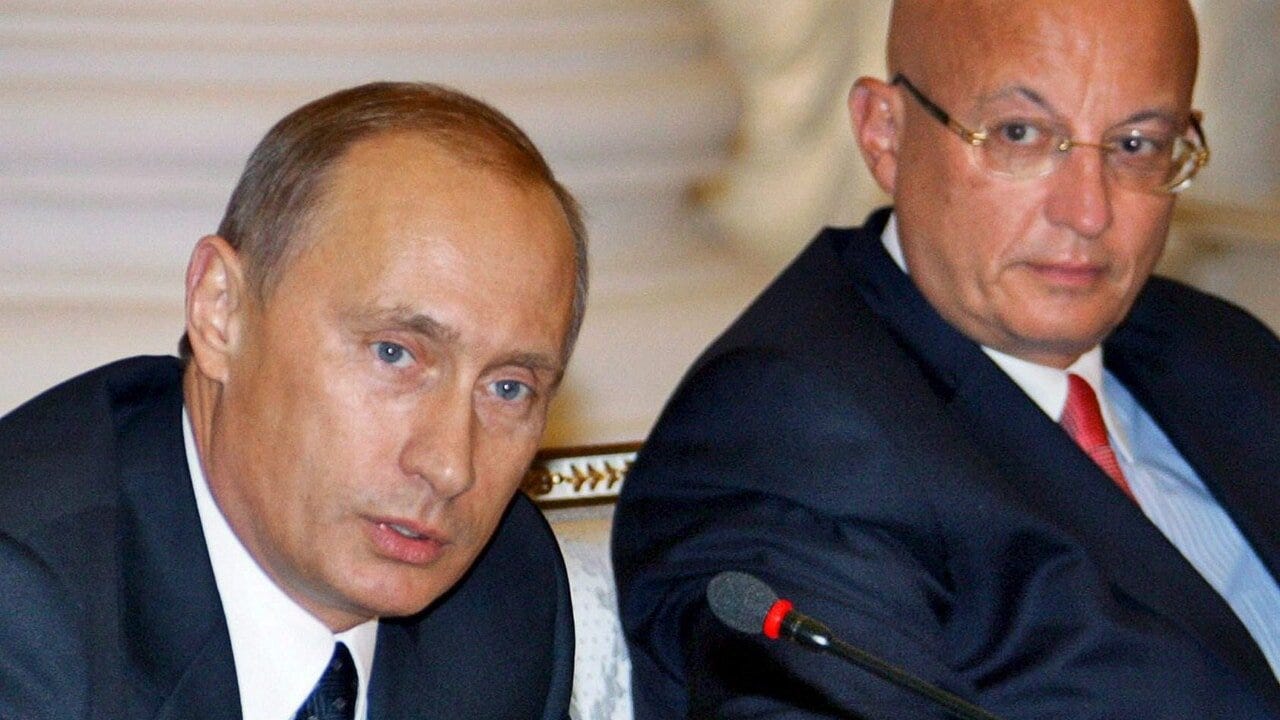Sergei Karaganov Tries to Find a Way to Win Russia’s War
Russian political scientist Sergei Karaganov looks on at a young Putin
I first met Sergey Alexandrovich Karaganov in the late 1980s. A few years younger than me, he shared my interests in European security and nuclear arms control. He was at the Academy of Sciences in Moscow and enjoying the opportunities opening up after Mikhail Gorbachev encouraged fresh thinking and more open relations with Western academics and think-tankers. To be honest I enjoyed his company. His English was excellent, and he was full of interesting observations on the Soviet - soon the Russian - scene. Our paths continued to cross occasionally, and our conversations remained cordial.
Following the collapse of the Soviet Union he became an influential figure in the Russian Federation, advising first Boris Yeltsin and then Vladimir Putin. He is now Dean of the Faculty of World Economy and International Affairs at Moscow’s Higher School of Economics, and honorary chairman of Russia’s Council on Foreign and Defence Policy. The Council is one of Russia’s most prominent foreign policy think tanks, with its own journal, Russia in Global Affairs, and a close association with the Valdai Forum, often described as Russia’s Davos.
There is always a temptation to dismiss organisations such as the Council as propaganda outfits, and figures such as Karaganov as mouthpieces for the regime. In some respects they are, because they are loyal to a state which is fighting a criminal war and which has a low tolerance of disloyalty. But so long as the parameters are acknowledged, within those parameters one can detect matters of concern and real debate. It is worth making some effort to try to understand Russian perspectives if only because otherwise we are left with rumours, speculation, and inferences.
Karaganov’s writing is interesting not because he offers compelling arguments, as they contain obvious flaws, and certainly not because he is a dissident, because he is very much part of the Russian elite. He has, however, developed some of the core themes of Putin’s foreign policy. The tensions within his writing reflect issues with which the elite is grappling, including how to end the war. In June he published an article which argued that Russia must break the will of the United States by threatening to use and even using nuclear weapons. I’ve recently been re-reading the article and what has struck me is not so much the pointers to a more aggressive nuclear strategy – Putin almost immediately rejected his proposal – but what it reveals about the problem he was seeking to solve.
Keep reading with a 7-day free trial
Subscribe to Comment is Freed to keep reading this post and get 7 days of free access to the full post archives.


